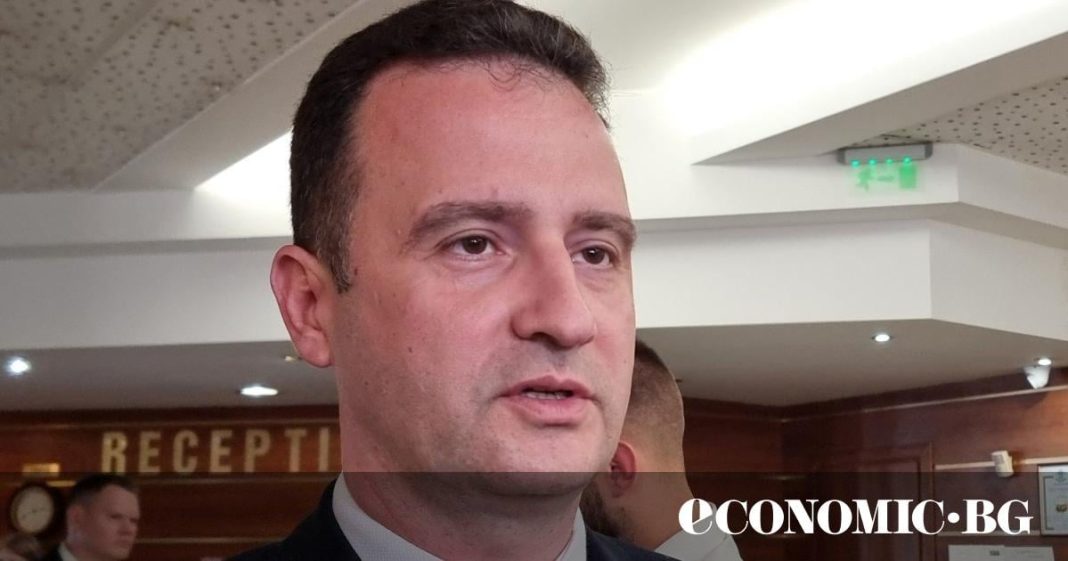In addition to the Kozloduy Nuclear Power Plant, the state is considering the reclaimed areas in the Maritsa basin and substations as possible locations for data centers. This was announced by Energy Minister Zhecho Stankov at the opening of the annual conference on nuclear energy organized by Bulatom.
According to him, in order to invest in such centers, an investor is looking first for energy security, secondly for physical security, and thirdly, cooling systems are extremely important, “because they (data centers) consume a large amount of energy and emit a large amount of heat energy.”
Undoubtedly, the Maritsa basin, where we have huge areas of cultivated land and land that is to be cultivated in line with the transition plans, is also a possible location,“ he added.
The minister pointed to the area around the Kozloduy nuclear power plant as the most suitable location, “as it has the necessary cooling channels, physical security due to the nuclear power plant, and real energy security through, if you will, a direct cable that can act as a bridge.”
One option is to build such centers near large 400-kilovolt substations owned by the Electricity System Operator, “even though they do not have on-site power generation, they are well supplied and secured.”
So, we can safely talk about data centers in the vicinity of each of these substations.
According to Stankov, Bulgaria has the entire portfolio of opportunities and can therefore be a magnet for such investments.
We have our own optical networks for data transmission, so we can offer a comprehensive service to every investor. On behalf of the Prime Minister, Deputy Prime Minister Donchev, and the Ministry of Energy, we have committed to having a specific team that will, as they say, hold the hand of such investors and guide them through all the procedures with reduced administrative burden, with a view to implementing such projects as quickly as possible.“
When asked where the interest in building such data centers comes from, Stankov commented that silence is required on this process. “Because any such large company, you know, in most cases is listed on the stock exchange and any wrong signal affects their decisions later on,” Stankov said.
So we are doing everything we can to make this happen in the country.“
Money for new nuclear power
The state budget has allocated BGN 2.5 billion, which will go to the Bulgarian Energy Holding, and part of it will be directed towards the implementation of new nuclear power plants.
„We will make a very careful allocation to direct part of this capital to the Kozloduy NPP – New Power Units, specifically to secure our own financing for the project, because this is vital to show our partners, to show others, including the export banks in Korea and the United States, that our country is taking this project very seriously and will provide the necessary state funding so that we can have their support in the same way.“
Ultimately, the specific amount to be allocated to the new nuclear project will have to be discussed.
I expect these funds to be allocated to the Bulgarian energy sector from the state budget by September.
According to Stankov, it is important to continue work on the new pumped storage power plants, which the state has submitted to the European Commission as projects of common interest, the Vertical Gas Corridor, and the construction of the new 400, 110, and 220 kilovolt network of the Electric Power System.
We must be careful to use every penny, so to speak, in the necessary way so that we can develop the entire sector.“
The price remains the same
The final price that the consortium will offer is expected to be announced by the end of June. Ultimately, it will be around the amount quoted so far – €15 billion for the two blocks.
Personally, I see no reason, without wanting to comment in detail on the price that my colleagues will indicate, to believe that it will differ significantly from what has been discussed and that it will be close to the amounts that have been mentioned. So I personally see no reason for any significant change,“ he said.
The official contract for the construction of Units 7 and 8 of the Kozloduy NPP is expected to be signed by the end of 2026.
According to Stankov, if the project schedules for Units 7 and 8 are strictly adhered to, the construction contract should be signed next year, and in 2033, or 2034 at the latest, the first reactor should be put into operation. The other is expected to start operating within the next two years.
Translated with DeepL.
Източник: Economic.bg


